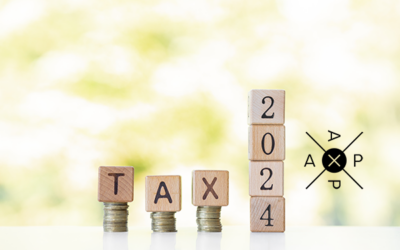Making Sense of Dutch Taxes: Your Guide to the 30% Rule as an Expat

In the heart of Europe, the Netherlands shines as a place with diverse cultures, good jobs, and a great quality of life. Lots of people from different countries – called expats – come here to live and work. But there’s something tricky they need to understand: Dutch taxes, especially the 30% ruling.
The Netherlands has a complex fiscal landscape that can leave even the most seasoned expat feeling perplexed. The 30% ruling, designed to attract skilled workers from abroad, is a prime example of this complexity. While it offers a significant tax advantage, its eligibility criteria, application process, and potential impact on financial planning demand a comprehensive exploration.
If you’re moving to the Netherlands for work from another country, you might find that the cost of living is higher than what you’re used to. For example, living expenses here can be more expensive than in your home country. If that’s the case, your employer might give you money to cover these extra costs, and you won’t need to pay tax on it. Your employer could also decide to pay you 30% of your salary, including these extra costs, without taxing it. This is what’s known as the 30% facility.
The 30% ruling is a tax break that international employees who come to the Netherlands or expats already working here can get. It’s for people who have special skills that are hard to find. To get this tax break, you need permission from the Dutch tax office.
To be eligible for the 30% rule, certain conditions must be met.
- You need to have a job where you are getting paid.
- You should have a unique skill that’s not easy to find in the Dutch job market. This is important because they want to attract people with special talents. In order to measure if you have an unique skill the Dutch Tax office, looks at your salary. You have that expertise if your salary, not including the tax-free allowance in the Netherlands, is more than:
- €41,954 in 2023
- €39,467 in 2022
- €38,961 in 2021
3. You must have been hired from a place outside of the Netherlands. This place needs to be 150 km from the Dutch border for more than 16 months in the 24 months prior to your first working day in the Netherlands. You are not allowed to have lived in Belgium, Luxembourg and parts of Germany, France or the United Kingdom.
Over the last years, the Dutch government has reduced the maximum duration of the 30 percent to 5 years.
AXP Advisors
When it comes to the 30% rule, enlisting the expertise of an advisor of AXP Advisors is a smart move. A qualified advisor possesses in-depth knowledge of tax laws, regulations, and deductions, ensuring accurate and optimized tax filings. AXP Advisors can help you navigate the complexities of the tax system, identify potential savings, and minimize the risk of errors or audits. By entrusting your income tax to us, you gain peace of mind, save time, and maximize your financial benefits.
This article is part of a serie about the tax system in the Netherlands, read here about the the basics of VAT. In our next article we will dive deper into the other taxt boxes.






